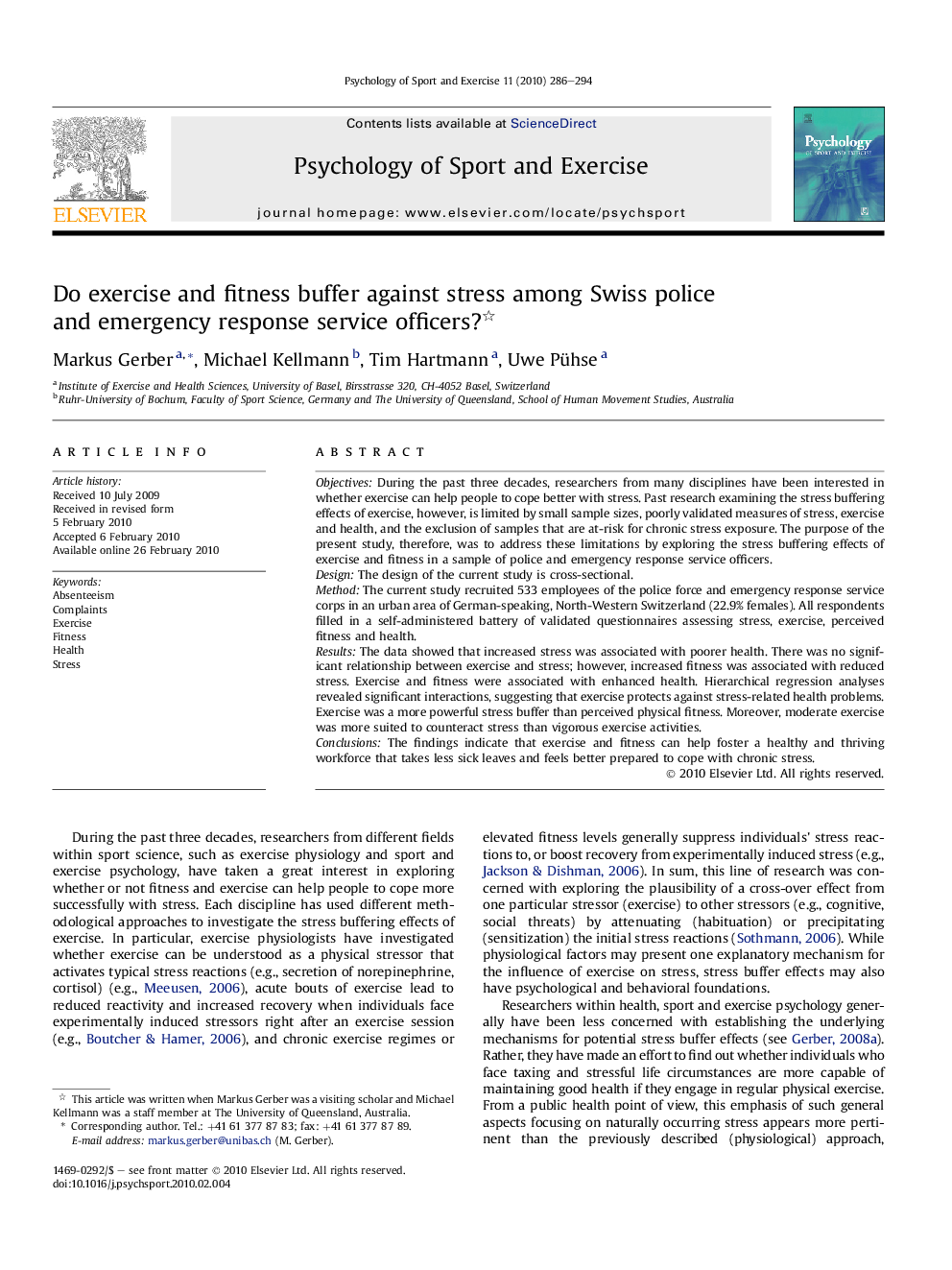| Article ID | Journal | Published Year | Pages | File Type |
|---|---|---|---|---|
| 894712 | Psychology of Sport and Exercise | 2010 | 9 Pages |
ObjectivesDuring the past three decades, researchers from many disciplines have been interested in whether exercise can help people to cope better with stress. Past research examining the stress buffering effects of exercise, however, is limited by small sample sizes, poorly validated measures of stress, exercise and health, and the exclusion of samples that are at-risk for chronic stress exposure. The purpose of the present study, therefore, was to address these limitations by exploring the stress buffering effects of exercise and fitness in a sample of police and emergency response service officers.DesignThe design of the current study is cross-sectional.MethodThe current study recruited 533 employees of the police force and emergency response service corps in an urban area of German-speaking, North-Western Switzerland (22.9% females). All respondents filled in a self-administered battery of validated questionnaires assessing stress, exercise, perceived fitness and health.ResultsThe data showed that increased stress was associated with poorer health. There was no significant relationship between exercise and stress; however, increased fitness was associated with reduced stress. Exercise and fitness were associated with enhanced health. Hierarchical regression analyses revealed significant interactions, suggesting that exercise protects against stress-related health problems. Exercise was a more powerful stress buffer than perceived physical fitness. Moreover, moderate exercise was more suited to counteract stress than vigorous exercise activities.ConclusionsThe findings indicate that exercise and fitness can help foster a healthy and thriving workforce that takes less sick leaves and feels better prepared to cope with chronic stress.
